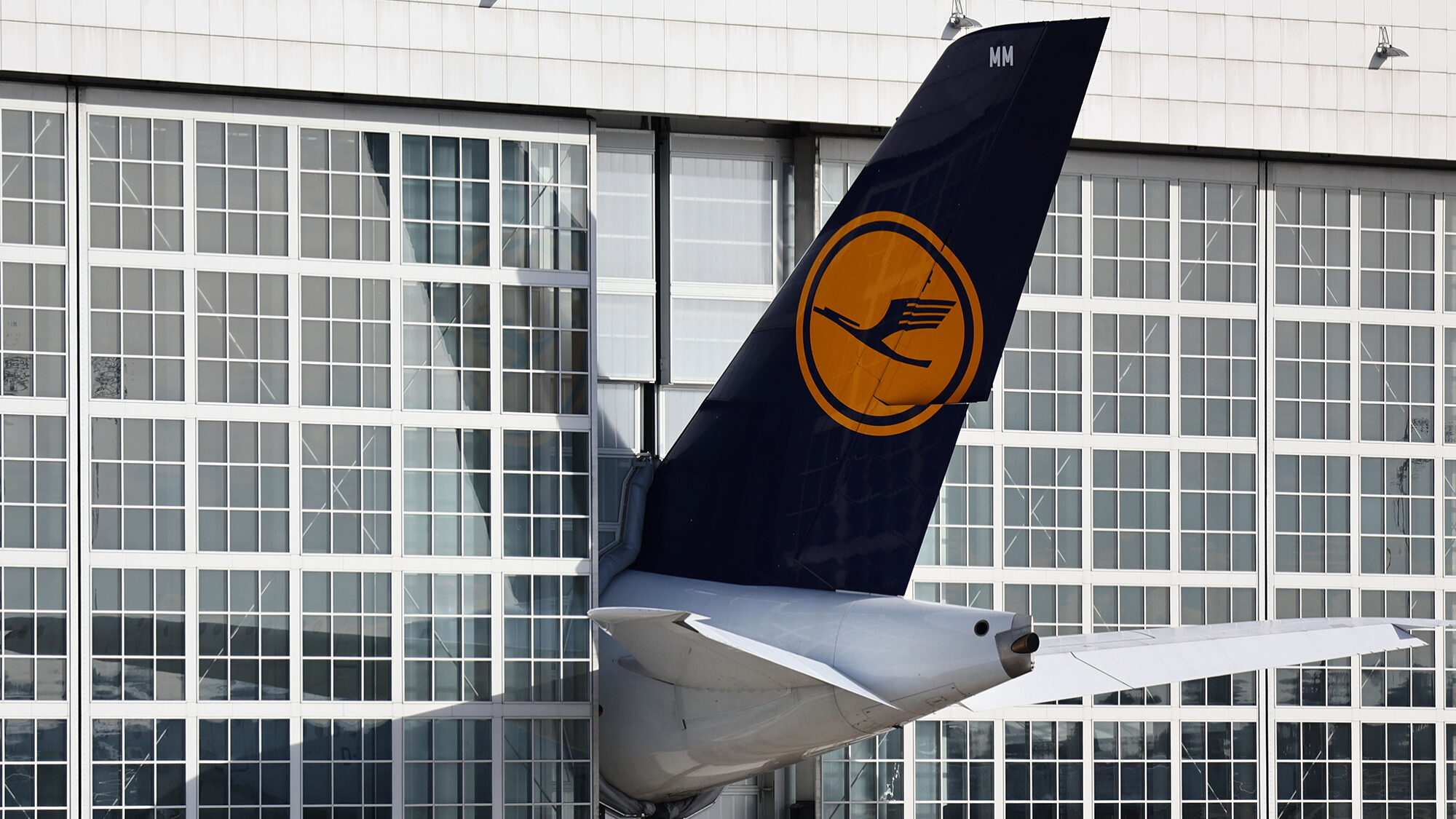Portuguese wine could lose more than 20% of the US market with 15% tariffs
Representatives from the wine industry lament that Brussels did not negotiate a better agreement, but still believe that wine could be added to the list of products exempt from tariffs in the US.
Although negotiations are continuing that may still include alcoholic beverages on the list of products exempt from tariffs for the United States, from August 7, European wines and spirits destined for the country will indeed be subject to customs duties of 15%. If this tariff is maintained, Portuguese wine could lose more than 20% of the US market, which last year purchased more than €100 million worth of wine, according to industry representatives.
The agreement sealed on Sunday between US President Donald Trump and European Commission leader Ursula von der Leyen set a maximum ceiling of 15% on US customs duties on most European goods and tariff exemptions for certain products. Although the final text is not yet finalized — there are many details and negotiations still underway — the agreement has brought predictability to business, ending a period in which entrepreneurs were “in the dark” about how much their products would pay to enter the US.
The Portuguese wine sector, which in 2024 sold €102 million to the US (10.58% of total national exports), applauded the end of uncertainty but points to the high costs that tariffs of this magnitude can bring to the sector. “The 15% [tariff] is not good. It causes us some difficulty. Our direct competitors, such as Australia and China, have 10% tariffs”, Frederico Falcão, president of ViniPortugal, told ECO.
The spokesperson acknowledges, however, that this scenario brings “predictability”. “Knowing what we can count on, even if it means a 20% decrease in orders, or perhaps even more”, makes the business more predictable, says the industry spokesperson. This predictability is valuable for wine exporters to the US, who were threatened with 200% tariffs and saw many customers freeze orders until there was greater clarity on trade policy.
However, an increase in the rate to 15%, above the 10% currently in force and paid by other competitors of European wines, is likely to result in price increases of over 20% for US consumers, which will be reflected in a drop in demand, explains Frederico Falcão. “The drop in consumption will most likely be above 20%”, he estimates.
Despite these forecasts, Frederico Falcão remains optimistic about the ongoing negotiations, particularly regarding tariff exemptions. “We strongly expect that [the wine sector] will end up with zero tariffs. Negotiations are continuing”, he said in statements to ECO. He is confident that there will be “good news” in the coming days, avoiding this more negative scenario for the sector.
Bernardo Gouvêa, president of the Vine and Wine Institute (IVV), also admits that the imposition of tariffs will result in a drop in demand. But, like the president of ViniPortugal, he still believes that it is possible to add wine to the list of products exempt from tariffs. “It would be good if wines could be included in the 0% tax regime”, he says. If this does not happen, he argues that “there is still room for Portuguese wines to increase their prices and remain competitive. We are at a very low price level in the US market”, he points out.
“It may even be an opportunity to improve price positioning in the US. Even with higher prices, Portuguese wines are not ‘uncompetitive’”, argues the president of the IVV. Bernardo Gouvêa believes that “the smart thing to do is to step up promotion and marketing efforts” in order to position Portuguese wines in a higher price range.
The president of the public institute also notes that the imposition of these tariffs will “require producers to be more concerned with monitoring the market” and will have to strengthen negotiations with distributors. Even so, he emphasizes that “all countries will have some kind of tariff”, although the rate paid by Portuguese wines will be higher than that imposed on the United Kingdom, Australia, or China.
Paulo Amorim, president of the National Association of Wine and Spirits Traders and Exporters (ANCEVE), warns that Donald Trump’s tariffs are the “perfect storm that will make the 2025 harvest even worse than 2024 in terms of drama for the Portuguese wine industry”.
As for the agreement reached last weekend, Paulo Amorim is harsh in his criticism: “It was a terrible agreement that once again severely damages Ursula von der Leyen’s image.” “Europe did not want to retaliate, and I think that was a strategic mistake. It was left in a very diminished position, and von der Leyen played a regrettable role by going to meet the US president at a hotel he owns in Scotland“ to sign an agreement. ”This was, in practice, a major public relations operation for the US president, who is grappling with the huge Epstein scandal”, he said.
Paulo Amorim also considers it “regrettable” that the United Kingdom, which left the European Union and does not have the same “firepower”, managed to negotiate lower rates of 10% on its own. The ANCEVE leader also regrets the months of uncertainty surrounding tariffs, which have impacted sales to the country. “Imports were blocked as early as March. Importers stopped orders at a time when Portugal was growing in wine exports [in the first quarter]. Right now, it is falling sharply because of the problem in the United States”, he explains.
“For the distribution system in the US, it’s terrible and will cause many layoffs and even bankruptcies, because distribution and import companies in the US are very dependent on Italian, French, Spanish and, to a lesser extent, Portuguese wines”, he says. The fact is, Paulo Amorim sums up, these agents cannot “survive” on California or Chilean wines alone. “It is vital for them to have European wines”, he points out.
João Gomes da Silva, executive director of Sogrape, acknowledges that this decision to apply tariffs of 15% on European wines from August 7 “represents a significant challenge for the wine sector”. For Sogrape, the US is the third most important market and “a strategic destination for several brands in its portfolio”. “Although the reduction of the initially planned tariff [20%] to 15% is a positive sign, the short-term impact could still translate into a decline in demand due to price increases”, says the manager of Portugal’s largest wine company.
“Sogrape is working closely with its local importer to mitigate the effects of this measure, ensuring the competitiveness and value of its offer, and remains committed to its US consumers and partners”, adds João Gomes da Silva, who acknowledges that “the uncertainty since the end of 2024 has already led to a decline in the market”. “The imposition of these tariffs, due to their impact on prices, will inevitably lead to a decline, even if temporary, in demand”, he says.
Sogrape emphasizes that “the structural impacts are the result of very complex circumstances and, therefore, difficult to anticipate at this time, but no hypothesis should be ruled out”. The fact that the Vila Nova de Gaia group has its own importer in the US allows for a more agile and flexible response, “essential for adapting marketing and logistics strategies”.
Despite these difficulties, it is confident that “through dialogue and cooperation, it will be possible to overcome the current challenges and continue to grow in a strategic market for the group”. “We are confident in the strength of our brands and the close relationship we have cultivated over the years with our partners and consumers, who continue to show a growing interest in Portuguese wines”, it concludes.
Tomás Roquete, administrator of Quinta do Crasto, points out that, in the last year, the Douro estate exported “practically zero” to the US due to a problem with an importer. However, Tomás Roquete reveals that he has the “ambition that the US will one day return to being the company’s largest export market”, recalling that from 1997 to 2010 it was Crasto’s main export market. After 2010, the Brazilian market began to gain weight and became the main market. “The US did not keep pace with Brazil’s growth”, he reports.
“The US has enormous potential to once again become our main export market”, says the administrator of Quinta do Crasto, lamenting that with the 15% tariffs, “the expectation for growth this year in the United States will not be as high as it would be if there were no tariffs”. A “15% tariff is high, but it’s not the end of the business”, says Tomás Roquete, suggesting that the tariff be absorbed by the producer and importer.
“Canada, however, has removed all American wines from its shelves, and this may open up some opportunities here for wines from other parts of the world”, he adds. “We have to see if the 15% becomes an opportunity when compared to other countries with 20% or 25%, or if it becomes a weakness because others only had 10%”, points out Tomás Roquete.
Speed in the Mercosur agreement
One way to compensate for the loss to the US is to open up new markets, which can be achieved by unblocking other agreements. “The Mercosur agreement is yet another example of Europe’s slowness and lack of internal cooperation (…) This agreement could be very good for Portugal in the Brazilian market, which is a strategic market for us, and where we could increase sales significantly and compensate somewhat for what we will suffer in the US market”, said the president of ANCEVE.
The president of the Portuguese-Brazilian Chamber of Commerce and Industry (CCILB) also said last week that the tariffs imposed by the US president could act as a catalyst for an “urgent” rapprochement between Mercosur and the European Union.
Otacílio Soares da Silva Filho sees this scenario as a “strategic opportunity” to accelerate understanding between the two blocs and provide new opportunities and commercial scenarios for the Brazilian market.
The proposed free trade agreement between the EU and Mercosur, which remains to be ratified after decades of negotiations, emerges as a central instrument for “rebalancing international economic relations and strengthening South-North cooperation”, he stresses.
For Otacílio, the entry into force of the EU-Mercosur agreement could serve as a “regulatory and institutional anchor, promoting bilateral investment, skilled employment, and technological advances in both blocs”.
The head of the Portuguese-Brazilian Chamber of Commerce and Industry points out that, combined, Mercosur and the European Union would represent a market of more than 700 million people and a gross domestic product of close to US$22 billion. For Otacílio Soares da Silva Filho, this potential should be harnessed with “pragmatism, overcoming political resistance and internal barriers”.




